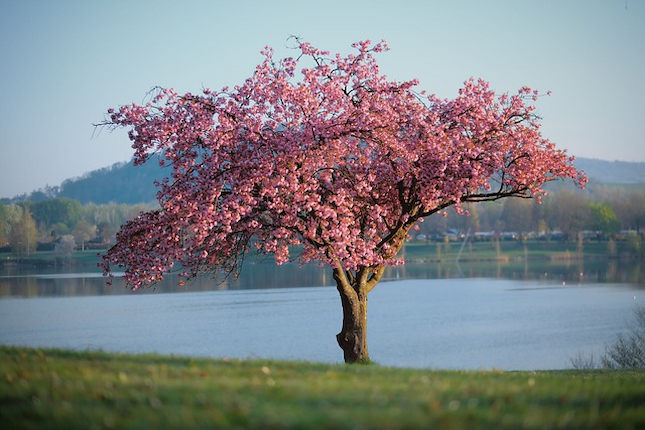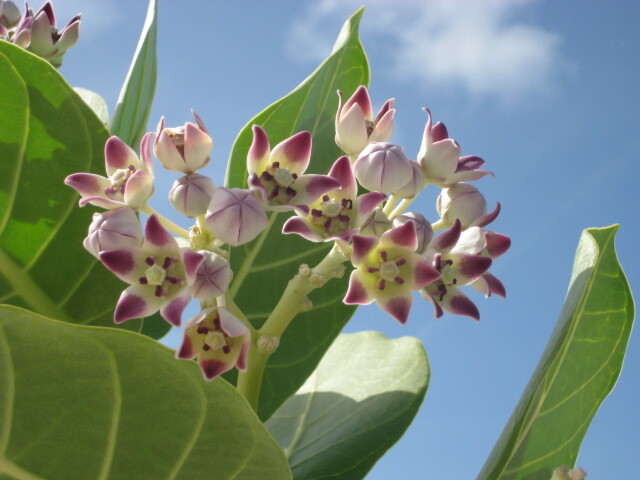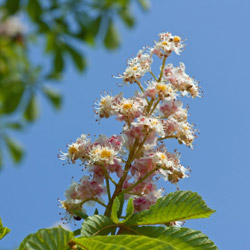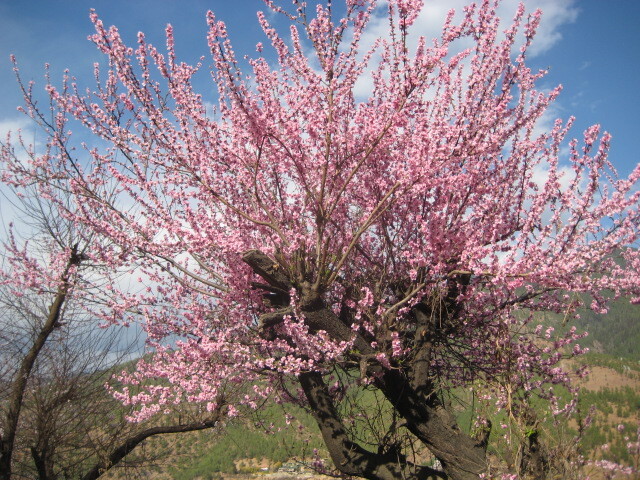Books
David Selby. (2024). Down the Combe Into the Meadow: Reflections on Nature and Learning. Ilfacombe, Devon: Blue Poppy Publishing. https://www.sustainabilityfrontiers.org/shop
David Selby & Fumiyo Kagawa. (eds). (2015). Sustainability Frontiers: Critical and Transformative Voices from the Borderlands of Sustainability Education. Leverkusen, Germany: Barbara Budrich Publishers.
Fumiyo Kagawa & David Selby. (2014). Child-friendly Schooling for Peacebuilding. New York: UNICEF. 124pp. https://www.unicef.org/education/files/Child-Friendly_Schooling_for_Peacebuilding.pdf
David Selby & Fumiyo Kagawa. (2014). Towards a Learning Culture of Safety and Resilience: Technical Guidance for Integrating Disaster Risk Reduction in the School Curriculum. Paris: UNESCO/Geneva: UNICEF. 229pp. http://unesdoc.unesco.org/images/0022/002293/229336e.pdf
David Selby & Fumiyo Kagawa. (2013). Towards a Learning Culture of Safety and Resilience: Technical Guidance for Integrating Disaster Risk Reduction in the School Curriculum (Pilot Version)
Paris: UNESCO/ Geneva: UNICEF, 2013, 192pp. http://unesdoc.unesco.org/images/0021/002194/219412e.pdf
David Selby & Fumiyo Kagawa. (2013). Climate Change in the Classroom: UNESCO Course for Secondary Teachers on Climate Change Education for Sustainable Development. Paris: UNESCO. http://www.unesco.org/new/ccesd
David Selby & Fumiyo Kagawa. (2012). Towards a Learning Culture of Safety and Resilience: Technical Guidance for Integrating Disaster Risk Reduction in the School Curriculum. Pilot Version. Paris: UNESCO/ /Geneva: UNICEF. http://unesdoc.unesco.org/images/0021/002194/219412e.pdf
Paula Jones, David Selby & Stephen Sterling. (eds). (2010). Sustainability Education: Perspectives and Practice across Higher Education. London: Earthscan. 364pp.
Fumiyo Kagawa & David Selby. (eds.). (2010). Education and Climate Change: Living and Learning in Interesting Times. New York: Routledge. 276pp.
James Gray-Donald & David Selby. (eds.). (2008). Green Frontiers: Environmental Educators Dancing Away from Mechanism, Sense Publishers, Rotterdam: Sense. 300pp.
Graham Pike & David Selby. (2004) Global Education: Theory and Practice. Almaty: UNICEF CARK (Central Asia and Kazakhstan). 180pp.
David Selby & Hanns-Fred Rathenow. (2003). Globales Lernen: Praxishandbuch fuer die Sekundarstufe I und II (Global Education: A Praxis Handbook for Secondary Grades). Berlin: Cornelsen. 240pp.
James Gray-Donald, Dick Holland, Fumiyo Kagawa & David Selby. (2002). Cultivating peace in the 21st century. Toronto: Classroom Connections. 59pp. [Authors received 2003 Canadian Peace Education Award for this publication.]
Graham Pike, Fatmira Myteberi, Stavri Llambiri, Astrit Dautaj, Mimoza Gjokutaj, Bukurie Rexha & David Selby. (2000). Global Education: Preparation of Children to Face up to the Challenges of the 21st Century. Tirana: UNICEF. 122pp.
Makoto Asano & David Selby. (eds). (2001). New Century, New Belongings: Essays in Global Education. Tokyo: Nihon Hyoron Sha. 290pp.
Tara Goldstein & David Selby. (eds). (2000). Weaving Connections: Educating for Peace, Social and Environmental Justice. Toronto: Sumach Press. 400pp.
Graham Pike & David Selby. (2000). In the Global Classroom: Book Two. Toronto: Pippin Publishing. 260pp.
Graham Pike & David Selby. (1999). In the Global Classroom: Book One. Toronto: Pippin Publishing. 256pp.
Graham Pike & David Selby. (1999). Global Education: Making Basic Learning a Child-friendly Experience. Amman: UNICEF/MENARO (Middle East and North Africa). 133 pp.



Book Chapters
David Selby & Fumiyo Kagawa. (2020). ‘Climate Change and Coronavirus: A Confluence of Crises as Learning Moment’. In: Pádraig Carmody, Gerard McCann, Clodagh Colleran & Ciara O’Halloran. (eds.). COVID-19 in the Global South: Impacts and Responses. Bristol: Bristol University Press. 17-27. https://library.oapen.org/handle/20.500.12657/42662
David Selby. (2015). ‘Climate Change: Reorienting the Development Agenda’. In: Gerard McCann & Stephen McCloskey. (eds.). From the Local to the Global: Key Issues in Development Studies. Third Edition. London: Pluto Press. 113-131.
David Selby & Fumiyo Kagawa. (2015). ‘Development Education and Education for Sustainable Development: Are they Striking a Faustian Bargain?’ In: Stephen McCloskey. (ed.). Policy and Practice: A Development Education Review. Belfast: Centre for Global Education.110-124.
David Selby & Fumiyo Kagawa. (2015). ‘Emerging dimensions of global environmental education.’ In: Zusana Gallayova, Zusana Dovalova & Juraj Hips, J. (eds.). Environmental Education in Context. Zvolen: Zivica/Technical University of Zvolen. 212-227.
Fumiyo Kagawa & David Selby. (2015). ‘Introduction.’ In: David Selby & Fumiyo Kagawa. (eds.). Sustainability Frontiers: Critical and Transformative Voices from the Borderlands of Sustainability Education. Leverkusen, Germany: Barbara Budrich Publishers.13-20.
David Selby. (2015). ‘Thoughts from a Darkened Corner: Transformative Learning for the Gathering Storm.’ In: David Selby & Fumiyo Kagawa. (eds.). Sustainability Frontiers: Critical and Transformative Voices from the Borderlands of Sustainability Education. Leverkusen, Germany: Barbara Budrich Publishers. 21-41.
Fumiyo Kagawa & David Selby. (2015). ‘Bringing Disaster to the Sustainability Agenda: The Case for Integrating Disaster Risk Reduction with Environmental and Sustainability Education.’ In: David Selby & Fumiyo Kagawa. (eds.). Sustainability Frontiers: Critical and Transformative Voices from the Borderlands of Sustainability Education. Leverkusen, Germany: Barbara Budrich Publishers.187-204.
David Selby & Fumiyo Kagawa. (2015). ‘Drawing Threads Together: A Critical and Transformative Agenda for Sustainability Education.’ In: David Selby & Fumiyo Kagawa. (eds.). Sustainability Frontiers: Critical and Transformative Voices from the Borderlands of Sustainability Education. Leverkusen, Germany: Barbara Budrich Publishers. 277-280.
David Selby. (2014). ‘Education for Sustainable Contraction as Appropriate Response to Global Heating’. In: Larry Bencze & Steve Alsop. (eds.). Activist Science and Technology Education. Dordecht: Springer. 165-182.
David Selby & Fumiyo Kagawa. (2014). ‘Striking A Faustian Bargain? Development Education, Education for Sustainable Development and the Economic Growth Agenda.’ In: Stephen McCloskey. (ed.). Development Education in Policy and Practice. London: Palgrave MacMillan.143-157.
Paula Jones, David Selby & Stephen Sterling. (2010) ‘Introduction’. In: Paula Jones, David Selby & Stephen Sterling. (eds). Sustainability Education: Perspectives and Practice across Higher Education. London: Earthscan. 1-16.
Paula Jones, David Selby & Stephen Sterling. (2010) ‘More than the Sum of their Parts? Interdisciplinarity and Sustainability’. In: Paula Jones, David Selby & Stephen Sterling. (eds). Sustainability Education: Perspectives and Practice across Higher Education. London: Earthscan. 17-37.
Paula Jones, David Selby & Stephen Sterling. (2010) ‘Endword’. In: Paula Jones, David Selby & Stephen Sterling. (eds). Sustainability Education: Perspectives and Practice across Higher Education. London: Earthscan. 329-30.
Fumiyo Kagawa & David Selby. (2010). ‘Introduction’. In Fumiyo Kagawa & David Selby. (eds). Education and Climate Change: Living and Learning in Interesting Times. New York: Routledge. 1-11.
David Selby. (2010). ‘ “Go, go, go, said the Bird”: Sustainability-related education in interesting times’. In: Fumiyo Kagawa & David Selby. (eds). Education and Climate Change: Living and Learning in Interesting Times. New York: Routledge. 35-54.
Fumiyo Kagawa & David Selby. (2010). ‘Climate change education: A critical agenda for interesting times’. In: Fumiyo Kagawa & David Selby. (eds). Education and Climate Change: Living and Learning in Interesting Times. New York: Routledge. 241-3.
David Selby. (2010). ‘World Studies, Globales Lernen und Bildung für nachhaltige Entwicklung – Annäherungen der Pädagogik an die Bedürfnisse des Planeten’. [‘Planetary Responsive Education in the Making: World Studies, Global Education and Education for Sustainable Development’]. In: Christian Geissler & Berndt Overwien. (eds). Elemente einer zeitgemäßen politischen Bildung. Festschrift für Prof. Hanns-Fred Rathenow. Münster: Lit Verlag. 299-320.
David Selby. (2009). ‘Im Angesicht globaler “Erhitzung“ – Bildung für nachhaltige Entwicklung oder nachhaltiges Masshalten?’ [‘In the face of global “Heating” – Education for Sustainable Development or Education for Sustainable Moderation?’]. In: Berndt Overwien & Hanns-Fred Rathenow. (eds.) Globalisierung fordert politische Bildung. Politisches Lernen im globalen Kontext [Globalization Calls For Political Education: Political Learning in a Global Context]. Leverkusen: Verlag Barbara Budrich. 279-99.
David Selby. (2008). ‘Global education as sustainable community education: Stories from Brazil, the Middle East and Albania’. In: John Blewit. (ed). Community, Empowerment and Sustainable Development. Dartington: Schumacher Institute Converging World Series 1, Green Books. 59-79.
David Selby. (2008). ‘Degrees of denial: As global heating happens should we be educating for sustainable development or sustainable contraction?’ In: Jerome Sattherwaite, Michael Watts & Heather Piper. (eds). Talking Truth, Confronting Power. Stoke-on-Trent: Trentham Books. 17-34.
David Selby. (2008). ‘The need for climate change in education’. In James Gray-Donald & David Selby. (eds). Green Frontiers: Environmental Educators Dancing away from Mechanism. Rotterdam: Sense. 252-62.
David Selby. (2007). ‘Reaching into the holomovement: a Bohmian perspective on social learning for sustainability’. In: Arjen Wals. (ed). Social Learning for a more Sustainable World. Wageningen: Wagenigen Academic Publishers. 165-180.
David Selby. (2006). ‘The firm and shaky ground of education for sustainable development’. In Jerome Satterthwaite, Wendy Martin & Lorna Roberts. (eds). Discourse, Resistance and Identity Formation. Stoke-on-Trent: Trentham Books. 21-42. Also in: James Gray-Donald & David Selby. (eds). Green Frontiers: Environmental Educators Dancing away from Mechanism. Rotterdam: Sense. 59-75. Also in: Brian Chalkley, Martin Haigh & David Higgit. (eds). Education for Sustainable Development: Papers in Honour of the United Nations Decade of Education for Sustainable Development (2005-14). New York: Routledge. 199-213,
David Selby. (2003). ‘Pour L’enfant…il importe moins de savoir que de sentir’ [For the child…it is more important to feel than know’] In: Laurent de Bartillat & Simon Retallack. (eds). STOP. Paris:Editions du Seuil. 444-5.
David Selby. (2003). ‘Global Education as transformative education’. In: Lang-Gregor Wojtasik & Claudia Lohrenscheit. (eds). Entwicklungspaedagogik – Globales Lernen – Internationale Bildungsforschung [Development Education, Global Education and International Educational Research]. Frankfurt am Main: IKO-Verlag fuer Interkulturelle Kommunikation. 145-165.
David Selby. (2002). ‘Educación global: Hacia una irreductible perspectiva global de la escuela’ [Global education: Towards an irreducible global perspective in school’]. In: F. Lopez Rodriguez. (ed). Valores escolares y educacion para la ciudadania [School values and education for citizenship]. Barcelona: Editorial GRAO. 13-27.
David Selby. (2002). ‘The signature of the whole: radical interconnectedness and its implications for global and environmental education’. In Edmund O’Sullivan, Amish Morrell & Mary Ann O’Connor, (eds). Expanding the Boundaries of Transformative Learning. New York: Palgrave. 77-93.
David Selby. (2001). ‘A marca da totalidade: Interconnexoes radicais es suas implicacoes para uma educacao ambiental global’ [‘The signature of the whole: Radical interconnectedness and its implications for environmental and global education’]. In Jose Eduardo dos Santos & Michele Sato. (eds). A contribuicao da educacao ambiental a esperance de Pandora, Sao Carlos: RiMa, 2001, 457-477.
David Selby. (2000). ‘Humane education: widening the circle of compassion’. In: Tara Goldstein & David Selby. (eds). Weaving connections: educating for peace, social and environmental justice. Toronto: Sumach. 268-296.



Articles
David Selby & Fumiyo Kagawa. (2020). Climate Change and Coronavirus: A Confluence of Two Emergencies as Learning and Teaching Challenge, Policy and Practice: A Development Education Review, 30: 104-14.
https://www.developmenteducationreview.com/issue/issue-30/climate-change-and-coronavirus-confluence-two-emergencies-learning-and-teaching
David Selby, Fumiyo Kagawa & Rowan Oberman. (2020). Along the Cays and Bays: Climate Change Learning in a Small Island Developing State, Policy and Practice: A Development Education Review, 30: 31-56. https://www.developmenteducationreview.com/issue/issue-30/along-cays-and-bays-climate-change-learning-small-island-developing-state
David Selby & Fumiyo Kagawa. (2018). ‘Teetering on the Brink: Subversive and Restorative Learning in Times of Climate Turmoil and Disaster,’ Journal of Transformative Education, 16 (4): 302-322. http://journals.sagepub.com/doi/10.1177/1541344618782441
David Selby & Fumiyo Kagawa. (2018). ‘Archipelagos of Learning: Environmental education on islands,’ Environmental Conservation, 45 (2): 137-146. https://doi.org/10.1017/S0376892918000097
David Selby. (2017). ‘Education for Sustainable Development, Nature and Vernacular Learning’, Center for Educational Policy Studies Journal, vol. 7, no.1: 9-27. https://ojs.cepsj.si/index.php/cepsj/article/view/10
Fumiyo Kagawa & David Selby. (2015). ‘The bland leading the bland: Landscapes and milestones on the journey towards a post-2015 climate change agenda and how development education can reframe the agenda’, Policy & Practice: A Development Education Review 21, Autumn: 31-62. https://www.developmenteducationreview.com/issue/issue-21/bland-leading-bland-landscapes-and-milestones-journey-towards-post-2015-climate
David Selby. (2015). ‘Roots of climate change denial’ (review article), Policy & Practice: A Development Education Review 21, Autumn, 154-161. https://www.developmenteducationreview.com/issue/issue-21/roots-climate-change-denial
David Selby & Fumiyo Kagawa. (2013). ‘World as “Lasting Storm”: Educating for disaster risk reduction’, Green Teacher 100: 21-32. http://greenteacher.com/world-as-lasting-storm-educating-for-disaster-risk-reduction/
David Selby. ‘Thoughts from a Darkened Corner: Sustainability Education in Times of Crisis’, For Environmental Education, issue 47 (issue 2 online), no pagination. http://www.peekpemagazine.gr/article/thoughts-darkened-corner-sustainability-education-times-crisis
Fumiyo Kagawa & David Selby. (2012). ‘Ready for the Storm: Education for Disaster Risk Reduction and Climate Change Adaptation and Mitigation’, Journal of Education for Sustainable Development, 6 (2): 207-17.
David Selby & Fumiyo Kagawa. (2012). ‘Climate Change Learning: Unleashing Blessed Unrest as the Heating Happens’, Green Teacher 94, Fall: 3-15.
David Selby. (2011). ‘Education for sustainable contraction as appropriate response to global heating?’, Journal for Activist Science and Technology Education, 3 (1): 1-14.
David Selby & Fumiyo Kagawa. (2011). ‘Development Education and Educations for Sustainable Development: Are They Striking a Faustian Bargain?’, Policy & Practice. A Development Education Review 12, Spring:15-31.
David Selby & Fumiyo Kagawa. (2011). ‘Unleashing blessed unrest as the heating happens’, Green Teacher 94: 3-15. http://greenteacher.com/unleashing-blessed-unrest-as-the-heating-happens-2/
David Selby and Fumiyo Kagawa. (2010). ‘Runaway climate change as challenge to the ‘closing circle’ of education for sustainable development’, Journal of Education for Sustainable Development, 4 (1): 37-50.
Fumiyo Kagawa & David Selby. (2009). ‘Climate change education: From a “business as usual” to transformative agenda’, Transitions (electronic resource of Earth and Peace Education Associates International), 4 (2): 10-14. http://www.globalepe.org
David Selby, Paula Jones & Fumiyo Kagawa. (2009). ‘Sustainability promotion and branding: Messaging challenges and possibilities for higher education institutions’. Sustainability, 1(3): 537-555. http://www.mdpi.com/2071-1050/1/3/537
David Selby. (2009). ‘Towards the sustainability university: The Centre for Sustainable Futures, University of Plymouth’, Journal of Education for Sustainable Development, 3 (1): 103-6.
David Selby. (2007). ‘As the heating happens: Education for sustainable development or education for sustainable contraction?’, International Journal of Innovation and Sustainable Development, 2(3-4): 249-267.
James Gray-Donald & David Selby. (2007). ‘Through the (not so green) door: connections between university campus greening and curriculum change’, Ekistics: the problems and science of human settlements, 71(427/428/429): 203-212.
David Selby. (2006) ‘The catalyst that is sustainability: Bringing permeability to disciplinary boundaries’, Planet (journal of GEES, the Geography, Earth and Environmental Sciences Subject Centre for the Higher Education Academy), 17 (December): 57-9. https://www.tandfonline.com/doi/full/10.11120/plan.2006.00170057
Fumiyo Kagawa, Colin Trier & David Selby. (2006). ‘Exploring students’ perceptions of interactive pedagogies in education for sustainable development’, Planet (journal of GEES, the Geography, Earth and Environmental Sciences Subject Centre for the Higher Education Academy), 17(December): 53-56.
http://www.gees.ac.uk/pubs/planet/index.htm
Fumiyo Kagawa & David Selby. (2006). ‘ “Now she is singing!” Emergency education in theory and practice’, Escalate newsletter (newsletter of the Higher Education Academy Subject Centre for Education), 6(Autumn):13-14. http://escalate.ac.uk/2936
David Selby. (2006). ‘The firm and shaky ground of education for sustainable development’, Journal of Geography in Higher Education, 30 (2): 351-365.
Alan Dyer, David Selby & Brian Chalkley. (2006). ‘A centre of excellence in education for sustainable development’, Journal of Geography in Higher Education, 30 (2): 307-12.
David Selby. (2005). ‘Responding to Globalisation and the Global Condition. Technocratic Skills or Normative Ideals? A Critique of Douglas Bourne’s Conception of Global Education’, Zeitschrift fur Bildungsforschung und Entwicklungspadagogik (Journal for International Education Research and Development Education), 28 (1): 35-39..
David Selby. (2004). ‘Entanglements and enfoldments: on being and becoming a global educator’, International Journal of Curriculum and Instruction, 5 (1): 69-83.
David Selby. (2004). ‘Dancing Earth: Radical interconnectedness and its implications for sustainability education’, Resurgence, 226(October/November): 21-4.
David Selby. (2001). ‘The signature of the whole: Radical interconnectedness and its implications for global and environmental education’, Encounter. Education for meaning and social justice, 14 (4): 5-16. Reprinted in Zeitschrift fuer Bildungsforschung und Entwicklungspadagogik (Journal for International Education Research and Development Education), 27 (4): 23-31.
David Selby. (2000). ‘Global education as transformative education’, Zeitschrift fur internationale Bildungsforschung und Entwicklungspadagogik (Journal for International Education Research and Development Education), 23 (3): 2-10.
David Selby. (2000). ‘A darker shade of green: the importance of ecological thinking in global education and school reform’, Theory into Practice, XXXIX(2): 88-96.
Graham Pike & David Selby. (2000). ‘Civil global education: relevant learning for the twenty-first century’, Convergence, XXXIII(1-2): 138-149.
David Selby. (1999). ‘Global education: towards a quantum model of environmental education’, Canadian Journal of Environmental Education, 4: 125-141.
Conference Papers
David Selby. (2000). ‘Global education: towards a quantum model of environmental education’. In: Ann Jarnet, Bob Jickling, Lucie Sauve, Arjen Wals, & Priscilla Clarkin. (eds). (2000). A Colloquium on: The Future of Environmental Education in a Postmodern World? Whitehorse: Yukon College. 139-146.
Technical Reports
Fumiyo Kagawa & David Selby. (2023). Leveraging Education in Emergencies for Climate Action. No Time to Lose: Commitment to Resilience and Learning Now. Geneva Global Hub for Education in Emergencies, Geneva. 82pp. Click here for the report.
David Selby & Fumiyo Kagawa. (2019). Working Together for Resilience: Linkages between School-Based Disaster Risk Management and Community-Based Disaster Risk Management. HOPE’ 87 & Sustainability Frontiers, Islamabad/Sidmouth. 121pp. Click here for the report.
Fumiyo Kagawa & David Selby. (2016). A Review of the Bangladesh School Curriculum through the Lenses of Disaster Risk Reduction and Climate Change Adaptation Learning. (commissioned by Safe the Children Bangladesh/National Curriculum and Textbook Board of Bangladesh). 71pp.
David Selby & Fumiyo Kagawa. (2016). Learn, Practice, Share: A Comparative Review of The Pillowcase Project. (commissioned by Global Disaster Preparedness Centre). 107pp. http://preparecenter.org/sites/default/files/comparativereview_thepillowcaseproject.pdf
Fumiyo Kagawa & David Selby. (2015). Disaster Risk Reduction in the School Curriculum, the Present and Potential Role of Development Agencies and the Implications for the Hyogo Framework for Action successor. UNISDR Global Assessment Report (GAR2015) Input Paper. (commissioned by Plan International Sweden). 47pp. Click here for the report.
David Selby & Fumiyo Kagawa. (2015). A Review of the Teacher Training Program on School Disaster Management in Sindh Province, Pakistan. Save the Children. 34pp.
Fumiyo Kagawa & David Selby. (2015). INJAZ Al-Maghrib School-based Youth Entrepreneurship Program baseline evaluation report. (commissioned by Drosos Foundation). 64pp.
David Selby & Fumiyo Kagawa. (2014). A Review of the Bangladesh Curriculum through the Lenses of Disaster Risk Reduction and Climate Change Adaptation Learning. Save the Children. 58 pp.
David Selby & Fumiyo Kagawa. (2014). Consultancy to Prepare an Education Sector Baseline Study and Upgrade the CDEMA Disaster Education Kit: Baseline Study Final Report. (commissioned by CEDMA). 70pp.
Fumiyo Kagawa & David Selby. (2013). Enhancing Child-centered Disaster Risk Reduction for Safe Schools: Insights from Cambodia, China and Indonesia. Plan International Asia Regional Office: Bangkok. 137pp. https://plan-international.org/publications/enhancing-child-centered-disaster-risk-reduction-safe-schools
Fumiyo Kagawa & David Selby. (2012). Disaster Risk Reduction Education in Vanuatu: Pilot Curriculum Materials, Teachers’ Guide and Evaluation Instruments, Save the Children Australia. Port Vila, Vanuatu.118pp.
Fumiyo Kagawa & David Selby. (2012). Disaster Risk Reduction Education in Vanuatu: A Baseline Study for Save the Children Australia. Save the Children Australia, Port Vila, Vanuatu. 71pp.
David Selby & Fumiyo Kagawa. (2010). Building Capacity in Development Education Project: Phase 2 Evaluation. Centre for Global Education, Belfast. 87pp.
David Selby, Paula Jones, Fumiyo Kagawa, Jon Shaw, Laura Roberts & Rebecca Skinner, (2009). Moving Forward: From Travel Plan to Transport Policy? Plymouth: Centre for Sustainable Futures Occasional Paper 2, University of Plymouth. 62pp.
Paula Jones, Fumiyo Kagawa & David Selby. (2008). A Big Hairy Audacious Goal: Marketing University Sustainability Credentials. Plymouth: Centre for Sustainable Futures Occasional Paper 1, University of Plymouth. 56pp.
David Selby. (2006). The Caritas Pre-school Project in the Municipality of Drenas, Kosovo: An Evaluation. Geneva: Caritas. 22pp.
Yoko Motani & David Selby. (2002). Earth Rangers: Phase 2 Report (evaluation report to the Schad Foundation, Toronto, on the second phase of their Earth Rangers School Assembly Project). 26pp.
David Selby. (2001). Pan Canadian Network of Faculties of Education Sustainability and Stewardship Recognition Program for Schools: A Business Plan. Ottawa: Pan Canadian Network of Faculties of Education Promoting Sustainability and Stewardship Education, Ottawa. 47pp.
Astrit Daujat, Aurora Bashati & David Selby. (2000). Global Education Project Albania: Report on Phase One Evaluation. Tirana: UNICEF/Ministry of Education and Science Albania Institute of Pedagogical Studies/International Institute for Global Education University of Toronto. 68pp
